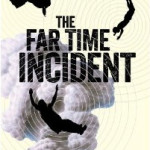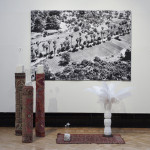A Conversation with Urban Fantasy Author Steve McHugh
I round off my release-week blog fest with a conversation with UK-based novelist Steve McHugh. I’d like to thank Steve and all the authors who have taken part either by posting, here, or by inviting me to post on their great blogs.
••••••••••••
Steve McHugh is an English urban fantasy author and last week 47North re-released his novels Crimes Against Magic and Born of Hatred. We both self-published our fiction before being signed up by our Seattle-based publisher. We thought we’d compare notes on our publishing journeys and talk about those things that authors love talking about – the next project, whiteboards versus notebooks, fonts… and plotting!
Anne: You’re currently working on two books, Steve, and I wondered how you organize your writing schedule – do you flit from one book to the other? And how do you avoid getting confused?
Steve: I write one and do the plot stuff for the other. Sometimes I don’t feel like writing so I work on the book’s plot. So, I’m writing my novella and plotting out book 4. When the novella is done, I’ll write book 4 and plot out either book 5 or my new shiny idea.
I used to use a notebook for each book, but I’ve started (as of yesterday) using index cards and a white board, so we’ll see how that goes for making things easier.
So, how do you juggle ideas for new books while writing?
Anne: I’m juggling lots of ideas for short stories at the moment. I’m writing two – jumping between them on roughly alternate days. They’re quite short so it’s not really a problem. But one thing I find helpful is to write each story in a different font – it instantly shifts my mindset. Last night, when I was dropping off to sleep, I imagined a conversation that would slot into one my short stories so I typed that up before breakfast today and I’ll try to polish the whole story this evening. A second novel is starting to take shape but I’m not forcing it just yet. I’m hoping the short stories will help to crystallize things. My first novel started out as a short story.
I’ve had to do quite a bit of research for these stories, which I’ve loved doing. How about you? What kind of research do you need for your novels?
Steve: A different font? That’s a great idea, I should try that.
I love research, it’s one of the most fun parts of being a writer. I’ve had to research a lot of mythology and monsters/characters that are contained within them. Then there’s weaponry, cars, historical details for cities and countries, clothes and far too many things to remember. I once had to phone the fire department in the UK and ask how to start a fire without making it look like it’s been deliberate. Once I explained to the very nice man that I wasn’t a crazy person, he was quite happy to explain. I did something similar with BMW and how to steal a Z4. Sometimes I think I’m trying to make myself into a master criminal.
So, what’s your favourite piece of research that you’ve done so far? Do you spend a lot of time researching before you get to the book, or do you do it as you go along?
Anne: I can’t tell you my best bit of research, which involved a trip to San Diego, because it would act as a spoiler for the novel!
Steve: Yeah, don’t spoil anything.
Anne: I do love the research element. I launched into writing A Calculated Life on the back of several conversations with neuroscientists. I allowed other research to feed into the story along the way and I’m now an expert (ahem) on stick insects, bee-keeping, growing citrus, even Medieval sculpture. Not as exciting as your research, Steve. But when a bit of research steers my story in a new direction or adds depth, that’s when I jump up and down, alone in my little study. So sad.
Steve: My research wasn’t so much exciting as it was lucky no one decided to send a few coppers round to have a chat.
Anne: Well, at least you’d get some writing done in your quiet police cell.
One thing we have in common, Steve, is that we both self-published our work before we signed contracts with 47North. It was an easy decision for me but I wondered if it was more difficult for you. What difference does it make to you now that you have a publisher?
 Steve: Actually it wasn’t a difficult decision at all. Speaking to the people who worked at 47North and seeing their enthusiasm for my work, sort of decided for me. The fact that they were willing to back my writing and help promote it, allowing me more time to actually write, was a pretty big factor too. That’s the big difference between being an Indie or self-published writer and not – you have that backing of something big behind you. There are people who bat for you, who want you to do well. Now, yes, if you do well, they do well, but their desire to see you succeed is a great thing. That said, I can still self-publish or publish other work with someone else, so not much has changed in that respect.
Steve: Actually it wasn’t a difficult decision at all. Speaking to the people who worked at 47North and seeing their enthusiasm for my work, sort of decided for me. The fact that they were willing to back my writing and help promote it, allowing me more time to actually write, was a pretty big factor too. That’s the big difference between being an Indie or self-published writer and not – you have that backing of something big behind you. There are people who bat for you, who want you to do well. Now, yes, if you do well, they do well, but their desire to see you succeed is a great thing. That said, I can still self-publish or publish other work with someone else, so not much has changed in that respect.
I currently write Urban Fantasy, but I have plans for a steampunk series and I’d like to do some SF and historical stuff. Do you have any plans to change your genre? Do you have a hankering to sink your teeth into something new and shiny?
Anne: Interesting question! How much should I reveal? I’m certainly going to use the short stories to stick my elbows out. My novel is a near-future dystopia set in the corporate world in England. So I’m now playing around with far-future and other-world scenarios. But I’m also looking at how to site historical stories alongside these futurist excursions, and I have a few ideas about that.
In addition… I’m messing about with the form of my stories. Some are very short. I’ve just this morning completed the first draft of a short story that’s written solely as dialogue: a conversation between two sisters walking along a beach. I’m writing several of these ‘conversations’ set in different places, different eras. I like that idea of continuity. In fact, my outline for these short stories is often very simple – a single sentence about the scenario/setting plus a single sentence of dialogue.
Do you have a particular way of bringing an idea into the open, of getting started?
Steve: I couldn’t do that with the short stories and conversations, my brain would just force me to keep going.
I don’t really have one set way. What tends to happen is something will come to me and then my brain will be like a dog with a bone. For example, I had an idea last week for a fantasy/SF/steampunk story. The entity of my idea was humanoid-animals. Within a few days I’d fleshed out the world, a few characters and had a rough idea of the beginning of the story. Once I start, I don’t seem to be able to stop until I’ve done something with it. Which is great when I’m working on what I’m meant to be working on, but when that new shiny idea pops up, it can put a spanner in the works as it demands to be thought about.
It’s probably why when I get round to writing the stories, I have a pretty good idea of characters/world and story. I know how it’ll end and will have a good idea of what I want to happen during the book, although it’s not set in stone.
Do you know what happens in your books before you start writing? Or are you a ‘as you go’ kind of writer?
Anne: Like you, nothing is set in stone. I’m definitely an ‘as you go’ writer. I knew my main character pretty well before I started my novel and I wrote, for my own background purposes, a description of what was going on in the world. Straight away I had an opening scene, and I set off. That opening scene is no longer at the beginning! I knew fairly early how I wanted to end the story but I didn’t map the book, chapter by chapter. I started another short story today – thought I knew where I was heading, and after two paragraphs I found myself veering off. I reckon each sentence is dictated by the previous one.
On another subject… while I was jogging at the weekend I envisaged a complete opening sequence for a movie, based on my novel. I was so excited I actually ran faster than humanly possible. So, to bring this conversation to a close… have you considered who might play the lead role in the movie of your book? Have you seen a movie and thought “That’s the perfect actor?”
Steve: Wow, I don’t think I’ve ever pictured one person as Nate. It changes quite often. Anthony Starr from Banshee is quite Nate-esque, as is Charlie Hunnam from Sons of Anarchy. Also, he’s British, which helps. I think both of those men have done excellent fight scenes and are quite capable of acting as a badass, but can also do the witty/more down-to-earth side of Nate too.
Who would you pick for yours then?
Anne: I can see it – Starr and Hunnam fighting for the role of Nate!
As for my main character Jayna… Hmm, I know the actor needs to portray Jayna’s slow transition from being ‘unknowing’, almost innocent, to a more animated character, without going totally overboard (so maybe we should chose our directors, too). From past films, I liked Audrey Tautou in Amelie (but she’s French) and the cool look of Uma Thurman in Gattaca. But among today’s rising stars, I think Carey Mulligan, if available, could make a good stab at the role (see An Education). And I’m intrigued by a Canadian actor – Tatiana Maslany – who stars in the new SF series Orphan Black on BBC3. (http://www.bbc.co.uk/programmes/p01ftyjj). She plays multiple roles in each episode so she’d cope with anything.
Well, that’s an upbeat note to end on!
•••••••••••••••••
Steve McHugh lives in Southampton on the south coast of England with his wife and three young daughters. When not writing or spending time with his kids, he enjoys watching movies, reading books and comics, and playing video games.
Crimes Against Magic
Born of Hatred
Facebook: https://www.facebook.com/hellequinchronicles
Twitter: @StevejMchugh
Website: http://stevejmchugh.wordpress.com






Leave a Reply
Want to join the discussion?Feel free to contribute!